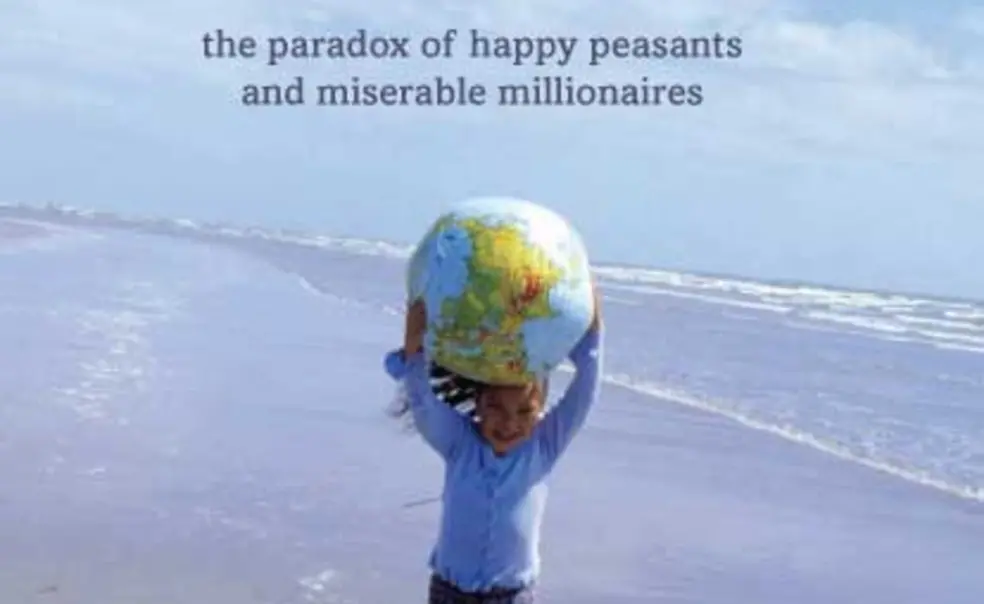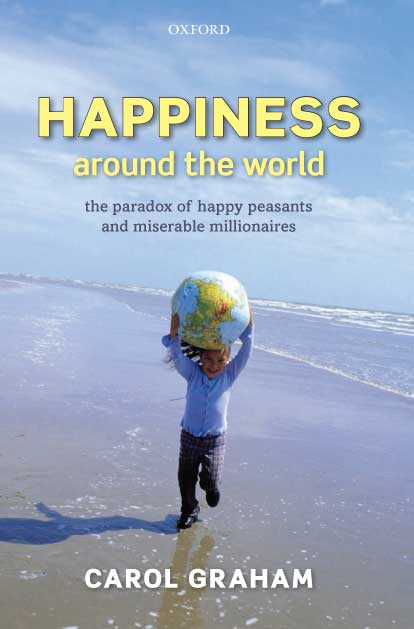Graham '84 examines happiness around the world
 New book: Happiness Around the World: The Paradox of Happy Peasants and Miserable Millionaires, by Carol Graham ’84 (Oxford University Press)
New book: Happiness Around the World: The Paradox of Happy Peasants and Miserable Millionaires, by Carol Graham ’84 (Oxford University Press)The author: Graham has studied poverty, inequality, and political economy in Latin America. Eventually that led her to examine income mobility in Peru and Russia, and to ask respondents how they felt about their movement up or down the income ladder. In 2000 she conducted the first study of happiness in a large sample of developing countries. Her new book reflects the last 10 years of her research. A senior fellow at the Brookings Institution and a professor of public policy at the University of Maryland, Graham is the author of numerous books and articles on poverty, inequality, and novel measures of well-being.
The book: In this study of what makes people happy, the author explores how factors such as income, health, education, religious belief, and marital status affect well-being. The study is based on her research in developed and developing countries, ranging from the United States to Afghanistan. Graham discovered surprising consistency in the determinants of happiness across levels of development.
In a recent Washington Post essay, she outlined the patterns she found:
"A stable marriage, good health, and enough (but not too much) income are good for happiness. Unemployment, divorce, and economic instability are terrible for it. On average, happier people are also healthier. ... Age and happiness have a consistent U-shaped relationship, with the turning point in the mid- to late-40s, when happiness begins to increase, as long as health and domestic partnerships stay sound."
But she also found that there is "a remarkable human capacity to adapt to both prosperity and adversity. ... The bottom line is that people can adapt to tremendous adversity and retain their cheerfulness, while they can also have virtually everything -- including good health -- and be miserable."
Opening lines: "What makes people happy? This is an age-old question, which over time has captured the attention of philosophers, historians, psychologists, and, most recently economists. King Midas sought happiness in gold, and, in the end, that pursuit made him miserable. How often do we hear the phrase: 'More money does not make you happy'? Yet if money does not make people happy, what does? Does money matter at all? Where and how does the average person find happiness? Given the diversity of people, countries, and cultures across the world, can we even venture an answer to that question?"
Reviews: "One of the surprising facts revealed" in her book, wrote a Financial Times critic, was that "most people are reasonably happy, whether rich or poor, African or European." By Katherine Federici Greenwood
Read about more Princeton authors on The Weekly Blog and view a complete list of works by alumni, faculty, and students at PAW online.













No responses yet